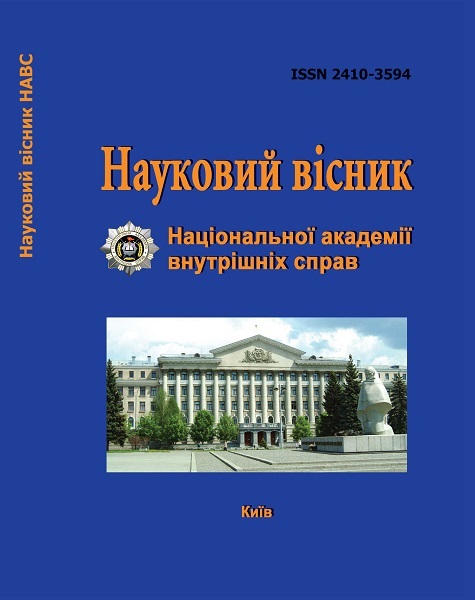Contemporary Conceptual Methodology Analysis of the Principles of Citizenship
Abstract
The article presents the theoretical approach to the analysis of the Instituteʼs methodology «principles of citizenship» taking into account the current political and legal situation in the state. The proposed approach provides identification and disclosure of a set of cognitive methods that in combination formulate the methodology of scientific analysis of the institute «principles of citizenship» and aims at identifying modern areas for improving the traditional method for the analysis of constitutional and legal phenomena of the traditional for national science of constitutional law. The purpose of this publication was to update and improve the methodology, and the task of the study was to identify the main levels of the methodology of the study of the Institute of Principles of Citizenship, to identify the peculiarities of the relevant scientific search procedures and ways to improve the methodology of research for the traditional Ukrainian science of constitutional law.
The paper notes that the special role of the methodological component of the scientific analysis of the principles of citizenship, which is actively formed at present, due to the political and legal situation, now requires its practical solution, which is impossible without its theoretical component, and the improvement of the methodological arsenal of legal science is the key to its progress. Multidimensionality of the principles of citizenship, their integrated nature, characterized by many peculiarities, is estimated from different sides in the system of the institution of citizenship, requires the use of not only one, but a set of methods of knowledge, including among the empirical methods of research using the method of comparative analysis. After all, it is thanks to him that the common and distinctive features (characteristics) of the investigated institute are found, which in combination formulate the research methodology.
Downloads
Abstract views: 124 PDF Downloads: 1245
- Authors reserve the right to authorship of their own work and transfer to the magazine the right of the first publication of this work under the terms of the Creative Commons Attribution License, which allows other persons to freely distribute published work with mandatory reference to authors of the original work and the first publication of an article in this magazine.
- Authors have the right to enter into separate additional agreements on non-exclusive dissemination of the work in the form in which it was published in the journal (for example, to post an article in the institution's repository or to publish as part of a monograph), provided that the link to the first publication of the work in this journal is maintained.
- The journal's policy allows and encourages the posting of articles by authors on the Internet (for example, in electronic storehouses of institutions or on personal websites), both before the submission of this manuscript to the editorial office and during its editorial processing, as this contributes to the creation of a productive scientific discussion and positively affects the efficiency and dynamics of citing the published work.




